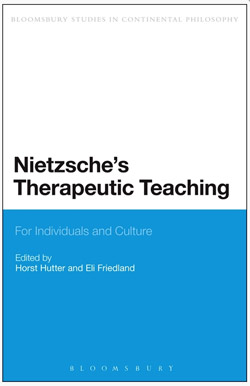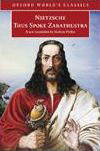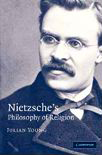- Home
- The Agonist
- Current Issue
- VOLUME VI, ISSUE I & II, SPRING & FALL 2013
VOLUME VI, ISSUE I & II, SPRING & FALL 2013
-
Horst Hutter and Eli Friedland’s Nietzsche’s Therapeutic Teaching: For Individuals and Culture
By Nicholas Birns
You may download the entire book review as Adobe PDF format clicking PDF icon on the left. If you need some clarifications about copyright or usage rights, please contact us at nceditors@ietzschecircle.com.
A quick preview of book review...
 The consensus about
Nietzsche is that he is constructivist, but not constructive. Iconoclastic,
yes; the great negator, yes; embodying the subversion and radical critique of
deconstruction with a pleasing individualism, yes. But is he someone who can
help us? Who can heal people? Who can affirm? Not Nietzsche. This is despite the
fact that many other philosophers, including complicated Continental
philosophers, have their names routinely involved as tropes of affirmation:
Heidegger lets us embrace being, Wittgenstein—the later—houses us in a
reassuring plurality of language-games. Even the dark and skeptical Foucault
was, at least in the 1980s, seen as affirming the realities of power. Even the
later Derrida was, for a brief and absurd time, seen as an Uncle Cuddly of
forgiveness. Nietzsche, perhaps the most brilliant of them all, yet left in an
outsider limbo, where, admittedly as Coleridge would put it, “he on honey dew
had fed/and drunk the milk of paradise,” but not to any affirmative end. This
collection, though, presents a different Nietzsche, one reflecting the following
magnificent quote from Human, All Too Human (Hollingdale translation):
“In the history of mankind the most savage forces beat a path, and
are mainly destructive, but their work was nonetheless necessary, in order that
later a gentler civilization might raise its house. The frightful
energies—those which are called evil—are the cyclopean architects and
roadmakers of humanity” (§246).
The consensus about
Nietzsche is that he is constructivist, but not constructive. Iconoclastic,
yes; the great negator, yes; embodying the subversion and radical critique of
deconstruction with a pleasing individualism, yes. But is he someone who can
help us? Who can heal people? Who can affirm? Not Nietzsche. This is despite the
fact that many other philosophers, including complicated Continental
philosophers, have their names routinely involved as tropes of affirmation:
Heidegger lets us embrace being, Wittgenstein—the later—houses us in a
reassuring plurality of language-games. Even the dark and skeptical Foucault
was, at least in the 1980s, seen as affirming the realities of power. Even the
later Derrida was, for a brief and absurd time, seen as an Uncle Cuddly of
forgiveness. Nietzsche, perhaps the most brilliant of them all, yet left in an
outsider limbo, where, admittedly as Coleridge would put it, “he on honey dew
had fed/and drunk the milk of paradise,” but not to any affirmative end. This
collection, though, presents a different Nietzsche, one reflecting the following
magnificent quote from Human, All Too Human (Hollingdale translation):
“In the history of mankind the most savage forces beat a path, and
are mainly destructive, but their work was nonetheless necessary, in order that
later a gentler civilization might raise its house. The frightful
energies—those which are called evil—are the cyclopean architects and
roadmakers of humanity” (§246).
Horst Hutter has long been known as one of the most charismatic and innovative Nietzscheans. From his base in Montréal’s most experimental Anglophone University, Concordia, Hutter has roved far and wide, in a Nietzschean way living out his takes of instruction. No one would be more suited to edit a volume on Nietzsche’s Therapeutic Teaching. He is ably assisted by Eli Friedland, who contributes a really original essay to close out the volume, to which I will return in good time. The volume begins with a few essays devoted explicitly to the question of teaching, followed by more specialized essays which radiate out to specific areas or treat the question of teaching more abstractly. Nathalie Lachance sets the agenda in an essay positioned early on in the book when she argues that to turn Nietzsche from questioning constructivist to constructive builder one has to read Nietzsche against himself to understand his call for reading beyond books as a call for reading beyond his books, and often not to take what he says literally or as Gospel truth.
These essayists could be accused of wanting to rework Nietzsche, to make him palatable for a politically correct twenty-first century agenda. But, more truly, these essays answer the persistent question of why the readings of Nietzsche that earlier generations have offered us are so unsatisfying. Lachance's essay, for instance, turns around customary conjectures that Nietzsche vaulted beyond the philology in which he had been trained by instead arguing that Nietzsche thought most philologists were simply bad philologists; a truly proficient philology would be eminently Nietzschean. So often, Nietzsche’s brashness and dynamism, his orientation towards action, have made people think that he was not au fond, what the root meaning of philology indicates: a lover of words.
To see Nietzsche as teacher and therapist, we must see him as more generous in his attitude towards, and manifestation of, language. Lawrence Hatab links Nietzsche to, again, thinkers usually seen as more constructive, midcentury cognitive linguists such as Vygotsky and Piaget. (One wonders why not Jakobson?). Whereas traditional Nietzscheans had seen Nietzsche’s preference for the early, the strong, and the instinctual as meaning he was not interested in language as a proliferating, mediating agent, Hatab points out that the key difference between Nietzsche and Plato is that Nietzsche is willing to acknowledge rhetoric. Hatab goes further when he argues that Nietzsche’s inclusion of rhetoric makes him more democratic than Plato, as it accepts the imperfection and vulnerability that rhetoric in a democracy inevitably has. Hatab fashions the Plato-Nietzsche contrast as, essentially, Plato keeps philosophy in the “mirror for princes” tradition; Nietzsche, through this acknowledgment of language, renders this mirror an arena for democrats, one of “agonistic, embodied passion” (202).
Babette Babich similarly emphasizes Nietzsche’s democratic potential, how, far from exalting the Übermensch as an ideal of concentrated power, as vulgar Nietzcheanism supposes, “worldly supremacy, this worldly and all too slavish power” (168). Contrasting Aristotle’s role as counselor to Alexander of Macedon in contrast to Empedocles, somebody with worldly power who gave it up or transmogrified it for the sake of philosophy, Babich seeks to disenthrall philosophy from dependence not only on literal monarchies but on metaphorical ones, for instance the promise of technological advance, which serves as a kind of vicarious magnet when totalitarian ideologies are no longer so readily available. (I must confess, though, that while I understand what Babich means when she says Heidegger opted for a king, when she says Zizek does as well, I do not see it, unless it is for the “monarchy” of pop celebrity, or unless he advised, say, Assad when somehow I was not looking, which I doubt). Babich reads Lucian of Samosata’s idea of the hyperanthropos, someone who precisely because of his dedication to “the art of attending to life”, chooses to eschew “the vanity of a worldly king” (168), as helping define what Nietzsche means by the Übermensch. It is not the mere hyperanthropos-Übermensch connection, which has been made by Walter Kaufmann and several others, which makes this essay original, nor the connection between Nietzsche and middle-antique skepticism, which has been made recently by Jessica Berry. It is Babich’s association of the hyperanthropos with an inversion of the authority, allegedly invested in the Greek polis but in many ways a displacement of traditional monarchical authority, privileged by such thinkers as Werner Jaeger, Eric Voegelin, and Leo Strauss. Babich reverses this paradigm to emphasize the over-person as someone who discards and carnivalizes accustomed ideas of governance and power. In a generally strong collection, Babich’s essay is one of a few that stands out because of its style and grace, and its willingness to make fresh connections, for instance allying Nietzsche with Hellenistic thinkers, although we have long been told he liked no Greek after Socrates. Babich is a literary as well as a philosophical thinker—she cites and brilliantly reframes Northrop Frye on satire—and her essay is a pleasure to read as well as admirable in its dedication to those too-rarely-aligned pillars of intellectuality and democratic instincts.
to continue reading, download entire essay as Adobe PDF format ...
The Agonist
-
Thus Spoke ZarathustraBy Friedrich NietzscheA new translation by Graham Parkes
Oxford University Press, 2005
Reviewed by Horst HutterThis new translation of Nietzsche’s magnum opus is by far the best available in the English language. It should find its way to the desk of all students who do not have access to the original German.
-
Nietzsche’s Philosophy of ReligionBy Julian YoungCambridge University Press, 2006
Reviewed by Horst Hutter,
Concordia UniversityEvery student of Nietzsche in the Anglophone world should read this book. It is a most able treatment of a much-ignored and much-misunderstood topic close to the very heart of the writings of this seminal thinker.
Support Us
Please consider donating! The NC is a not-for-profit organization. As an independent organization that receives no assistance from any institution, the NC relies on your magnanimity to sustain itself. Please help support the activities of the NC with a donation Donations of any kind, whether of money, services, equipment, or in-kind gifts, are all of great necessity and deeply appreciated.
Subscribe
To receive site updates, news, and announcement from NC via email. To do so, you simply need to provide your email address below.





